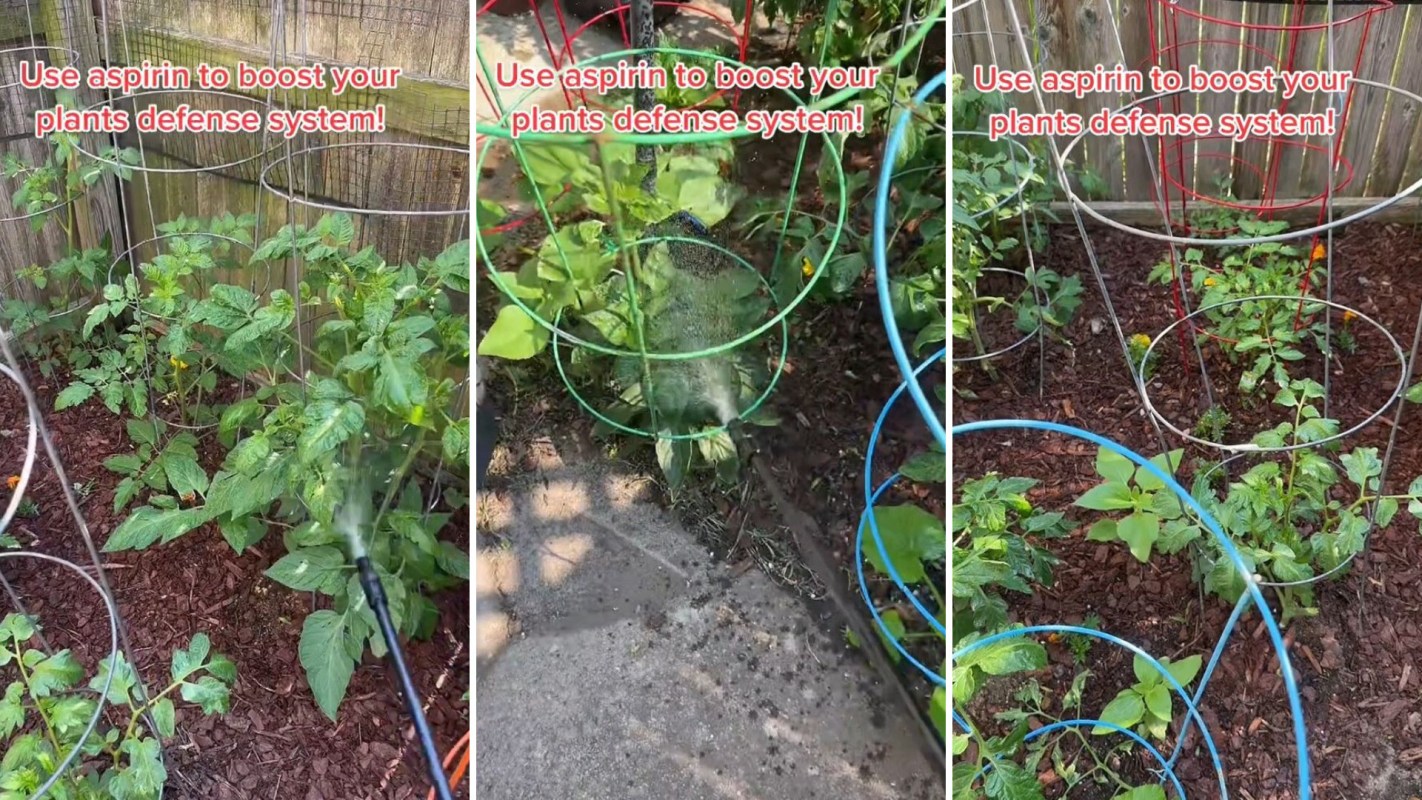Protecting your plant's health is a key part of any gardener's routine.
TikTok user @gardengirl1218 recently shared how gardeners can use two household ingredients to improve a plant's immune system without toxic chemicals.
@gardengirl1218 #garden #veggie #aspirin #vegetables #gardenpests #tiktok #nature #health #summer2023 #mastergardener #tomato #tomatoplants #happygardening ♬ original sound - Happy gardening 👩🌾
The scoop
The video explains that you can dissolve one tab of aspirin in a gallon of water and spray it on the plant's foliage every 10 to 14 days.
"You'll notice thicker, greener leaves," the creator explained.
The creator then explained that the hack "boosts the plant's defense system" and works on plants of varying ages.
"From an early plant on, it will help ward off blight, make your plant more resistant to pests such as aphids, and it will give you a healthier and more productive yield for a plant," the creator comments.
How it's helping
Asprin is a valuable tool in improving a plant's immune system because the pharmaceutical contains acetylsalicylic acid, which is chemically similar to the salicylic acid naturally found in plants. Plants release this compound to protect themselves from pathogens, so applying the diluted aspirin to the plant is a way to boost its immune response.
Several research bodies, including the United States Department of Agriculture, have studied the efficacy of aspirin in boosting plant immunity. The agency's study of a group of tomato plants treated with salicylic acid revealed that a phytoplasma pathogen was present in 94% of the untreated plants and only 47% of the treated plants.
The study's researchers "credit salicylic acid with triggering systemic acquired resistance, a kind of general readiness state that primes plant defenses against pending microbial or insect attack."
Research has also indicated that treating tomato plants with acetylsalicylic acid can help boost drought, frost, and heat tolerance. However, there is little scientific evidence that treating tomato seeds with acetylsalicylic acid will induce germination or kill pests.
This two-ingredient treatment is simple and inexpensive to make at home. It also is an alternative to purchasing synthetic chemical products, which can cause skin, eye, and mucous membrane irritation if misused.
In addition, these pesticides and fungicides may also require specific disposal criteria to prevent the chemicals from infiltrating the outside environment.
What everyone's saying
The creator answered a few users' questions about the hack in the comment section. They explained that viewers could also add a tablespoon of baking soda to "ward off powdered mildew," a fungus that presents as a thin white layer on top of a plant's leaves.
Some commenters joked about the hack.
One user commented, "My tomatoes don't have a headache anymore."
Join our free newsletter for easy tips to save more, waste less, and help yourself while helping the planet.









